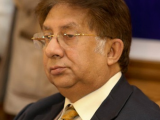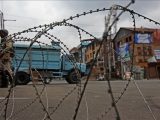
Enduring Crisis in IIOJK: The Human Cost of Draconian Laws
August 9, 2024For over seventy years, Indian-illegally occupied Jammu and Kashmir (IIOJK) has been plagued by a turbulent political environment, marked by severe human rights violations under harsh legal frameworks. The Indian government’s use of stringent laws such as the Armed Forces (Special Powers) Act (AFSPA), the Public Safety Act (PSA), the Unlawful Activities (Prevention) Act (UAPA), and the Enemy Agent Ordinance (EAO) has been a central issue, facilitating widespread repression and stifling political dissent.
These laws have been instrumental in maintaining control over the region through fear and intimidation. The AFSPA, for instance, grants Indian troops sweeping powers, including arrest and detention without formal charges or judicial oversight. This has led to numerous reports of extrajudicial killings and other severe abuses. The lack of accountability and the broad authority granted under AFSPA have fostered an environment where violence and brutality can be carried out with impunity.
Similarly, the PSA and UAPA have enabled the arbitrary detention of civilians, including political leaders, activists, and ordinary citizens. These detentions are often based on flimsy or fabricated evidence, serving as a tool for political repression rather than genuine law enforcement. The prolonged and arbitrary nature of these detentions is perceived as a means of punishing those advocating for Kashmiri self-determination.
Human rights organizations, including Amnesty International and Human Rights Watch, have condemned these laws for undermining democratic values and perpetuating what they describe as state terrorism. They argue that the application of these laws constitutes gross violations of international human rights conventions and amount to war crimes that warrant global scrutiny.
The international community has increasingly called for investigations into the abuses committed under the AFSPA, PSA, and UAPA. There is a growing consensus that these laws violate fundamental human rights and freedoms, and there is an urgent need for international intervention and reform to address the crisis in IIOJK.
As IIOJK endures the impact of these draconian laws, the demand for justice and accountability grows more urgent. Addressing the grievances of the Kashmiri people and protecting their fundamental rights are crucial for moving towards a peaceful and equitable resolution of the Kashmir conflict. The global community’s role in advocating for human rights and holding perpetrators accountable is essential for achieving a just and lasting resolution.

